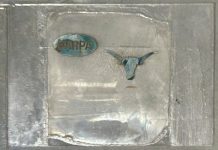
Researchers at Monash University have developed natural plastic films made from food waste sugars, with potential to provide compostable alternatives to petroleum-based plastics used in everyday packaging.
The study, led by Edward Attenborough and Dr Leonie van ’t Hag from the Department of Chemical and Biological Engineering, explores how sugars from food waste can be transformed into polyhydroxyalkanoates (PHA) biopolymers.
In a news release, the university said these biodegradable plastics could be applied in food packaging, agricultural films such as silage wrap, and medical products.
“This research demonstrates how food waste can be transformed into sustainable, compostable ultrathin films with tunable properties,” Attenborough said.
“The versatility of PHAs means we can reimagine materials we rely on every day without the environmental cost of conventional plastics.”
The researchers used two soil-dwelling bacteria, Cupriavidus necator and Pseudomonas putida, feeding them a carefully balanced mix of sugars, salts, nutrients and trace elements.
Monash said the researchers extracted the plastics after they had built up inside the microbes, processed them into films around 20 microns thick, and assessed their strength, flexibility, and melting characteristics.
“By tailoring these natural plastics for different uses, we’re opening the door to sustainable alternatives in packaging, especially where they can be composted along with food or agricultural waste,” Attenborough said.
The team is collaborating with industry partners including Enzide and Great Wrap through the ARC RECARB and VAP hubs to explore potential commercial applications in packaging and medical solutions.
Dr van ’t Hag said the framework could be expanded further. “This study highlights how PHAs can be designed for temperature-sensitive packaging, medical films and other products, addressing the global challenge of single-use plastic waste,” she said.
The university noted the research builds on earlier work demonstrating the potential of PHAs for use in sustainable drug delivery systems.
The findings have been published in Microbial Cell Factories.



















